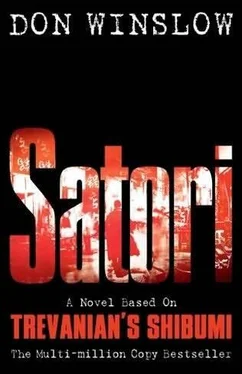“I am not amused.”
“Nor amusing.”
She reached to her bed table for a square of colored paper and unwrapped it to reveal a piece of chocolate and then noticed the Bolshevik’s hungry stare. Despite the fact that she had saved this little bit for weeks, she said, “How rude of me. Would you care for a bite?” Snapping the chocolate in half, she held it out to him.
He accepted it. “I haven’t seen chocolate since…”
“I believe ‘since before the Revolution’ is the phrase you’re searching for,” Alexandra said pleasantly. “Yes, St. Petersburg was a city of large and small pleasures then.”
“It’s Petrograd now.”
“As you wish,” she said.
She watched him savor the chocolate, and then he said, “You will be required to move out.”
What was she to do? she asked Nicholai as she told him the story. Her family had all been killed in the war or executed by the Reds. More than death, she was terrified by the thought of being out in the street, without her attachments, her belongings, her things. There were few places to live in Petrograd, fewer still where a notorious “White” would find a welcome. She had seen her peers on the streets carting human waste, selling apples, renting their bodies.
“And where will I go?” she asked.
“That is not my concern.”
Alone and helpless, the only power she retained was the only power a woman had in those days. She looked at him for several moments and then said, “It could be. Your concern, that is.”
“Whatever would make you think that?”
“The way you look at me,” she answered. “But am I wrong? Perhaps I am mistaken.”
“No, you are not wrong.”
Releasing her hand from his grip, she walked over to the huge bed.
She kept her apartments.
He joined her there many afternoons and most nights, his position in the Cheka protecting him, at least for the time being, against the “social contamination” of an affair with a member of the “possessing classes.”
One night he told her that he loved her. She laughed. “Certainly a good Bolshevik such as yourself doesn’t believe in romantic love.”
“Perhaps I do.”
“Perhaps you shouldn’t,” she said. “Romance is dead in this world, my dear. You should know, you helped to kill it. We have an arrangement, Voroshenin, nothing more.”
An arrangement indeed, he thought. She gave him herself, he protected her from himself. The symmetry was mind-boggling.
The next afternoon he walked into her apartment, his face white with concern. “Alexandra, you have to go. Now.”
She looked startled. “I thought that -”
“The Cheka knows about Rizhsky Prospect.”
Since the Revolution she had carefully, secretly, bit by bit hidden the Ivanov family fortune – millions of rubles – away in the safekeeping of an old accounting firm on Rizhsky Prospect. For a fee, the men there were slowly smuggling it out of the country, little by little, into banks in France and Switzerland. It was an act of incredible daring – Whites had been tortured to death for hoarding a watch, a ring, some loaves of bread, and she conspired to hide millions. And the discipline – feigning poverty, going hungry, starving herself, allowing herself only the odd little square of chocolate.
“It’s only a matter of time before they come for you,” he said. “Me too. You have to go. Get out. Leave the country.”
“But my things, my furniture -”
“A train east out of Finland Station tomorrow morning at seven,” Voroshenin said. “I’ve arranged space for you and all your things. A heavy bribe, but apparently you have money, no? I’ve drawn up travel papers that will take you safely to Vladivostok. After that…”
Thousands of Whites had taken this route – to Vladivostok, then across the porous border into China, where most had sought the relatively cosmopolitan refuge of Shanghai. It was not a pleasant choice, but the only choice she had.
“Where is your money?” he asked. “I’ll need some of it for bribes. The rest, carry with you in cash.”
“I’ll go get it.”
He shook his head. “Too dangerous. You would be arrested and then… I could no longer protect you. And you would tell them everything, Alexandra. Trust me on this, you would tell them everything they want to know and more.”
She told him where the money was. “But most of it is still there?” he asked.
She nodded.
They made plans.
Cheka agents would storm her house that night, “confiscate” and cart off all her furniture and belongings, and take them to a waiting rail agent at the station, where they would be loaded onto a special Cheka car.
“No one will have the nerve to inspect it,” Voroshenin assured her.
She would be “arrested” before dawn and taken to the station for removal to some hellhole in Siberia. Instead, she would ride in relative comfort to Vladivostok with the papers asserting her new identity.
“And my money?” she asked.
“I will deliver it to the train myself,” he said.
“And what about you?” she asked. “Aren’t you in danger?”
“I will be on the next train,” he said, “with my new papers. In Vladivostok, we can decide what to do next about our arrangement. But we have to act quickly,” he urged. “There is much to do and little time to do it, and the Cheka is on the hunt.”
Ivanovna gave him the address of the accountants in Rizhsky and then started to gather her personal belongings – jewelry, china, crystal, treasured family heirlooms, all the things she had protected against the mob for the past five long years.
Voroshenin went to Rizhsky Prospect.
His Chekan subordinates, suitably bribed and cowed, arrested her in the morning and took her to the train.
Voroshenin, of course, never turned up.
She knew that she had been outsmarted and was lucky he had let her take her belongings into exile.
This was the story that the Countess Alexandra Ivanovna told her son.
How Yuri Voroshenin had taken her honor and his inheritance.
VOROSHENIN SET DOWN the file.
Staring out the window, he forced himself to focus on the current applications and not drift into the realm of memory.
The reports, many of them copies of old and handwritten documents, were unanimous in the opinion that the Countess Alexandra Ivanovna had fled Russia in 1922, but that much Voroshenin already knew. Apparently she took the quite common eastern route, through Manchuria and into then wide-open China, where she was reputed to have settled in Shanghai. Although she had all her household possessions, she was otherwise penniless – but, again, Voroshenin knew that – and survived by using her wit, beauty, and seductive skills to charm a series of wealthy expatriates and adventurers.
Voroshenin had no doubt about her seductive powers, having experienced them himself. The memory of her lush body, satin skin, and…
According to the reports, Ivanovna had seduced a German nobleman, become pregnant by him, and then refused the pro forma offer of marriage from the young Keitel zum Hel. Sometime around 1925 or ‘26, she gave birth to a son, whom, unreconstructed aristocrat that she was, she christened Nicholai.
Nicholai Hel, Voroshenin noted, was almost precisely the same age as Michel Guibert. It was a coincidence, but the men Voroshenin knew who believed in coincidence were all dead men.
Such as zum Hel, who had died at Stalingrad.
Ivanovna disappeared from intelligence reports until 1937, when the Japanese occupied Shanghai and her house was commandeered, literally, by the Japanese general, Kishikawa. The cited informants salaciously repeated gossip that the relationship became something a bit more than hostess and hosted, and Voroshenin felt an unexpected twinge of jealousy, remembering afternoons in…
Читать дальше












